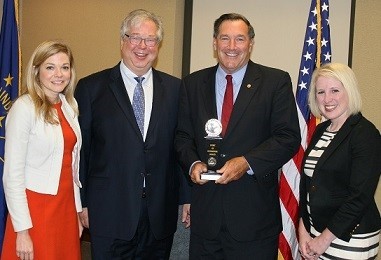 While the presidential election may be the talk of D.C. and the media, this is also a busy time of the year for federal policy conversations for the Indiana Chamber.
While the presidential election may be the talk of D.C. and the media, this is also a busy time of the year for federal policy conversations for the Indiana Chamber.
In mid-August alone, Sen. Joe Donnelly, Senate candidate Evan Bayh and state Sen. Jim Banks, the Republican candidate for congressional District 3, met with our congressional affairs committee members to discuss issues important to Indiana. And Congresswoman Susan Brooks (District 5) was the keynote speaker for our Indiana Conference on Energy Management, advocating for the need for both sustainable and affordable energy.
While we may never agree on all matters with our congressional members, their overall willingness to engage, listen and act – by and large – in the best interest of the Hoosier business community and residents is a longstanding hallmark of Indiana’s delegation. And we are very appreciative for that.
Donnelly, who is not up for re-election, shared his thoughts on a variety of issues during his nearly hour-long visit. For one, he contends the gridlock in Congress is overblown: “What you see on TV bears no reflection to what is reality.” He stressed that 80% of the time the group works together, but the 20% – which often features high profile issues – is what drives the media reports. And “time after time, the Indiana delegation works together.”
Whether that’s Brooks with Donnelly on the law to combat opioid abuse, signed by the President last month, or Indiana’s senior senator, Dan Coats, and Donnelly – joined by District 9 Congressman and Senate candidate Todd Young – leading the charge to suspend the medical device tax for two years. And these are just two of the many examples.
Incidentally, these are among the efforts that led to Donnelly being presented with the U.S. Chamber’s “Spirit of Enterprise” award at our office last week; the honor is for his continued commitment to job creation and economic growth.

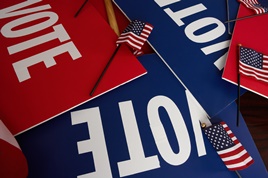 To describe the 2016 primary elections in Indiana as anything less than dramatic and jarring seems an understatement. Two years ago, record low turnout tipped the balance to ideological sub-groups of motivated voters. This year, unprecedented turnout in both parties was the environment.
To describe the 2016 primary elections in Indiana as anything less than dramatic and jarring seems an understatement. Two years ago, record low turnout tipped the balance to ideological sub-groups of motivated voters. This year, unprecedented turnout in both parties was the environment.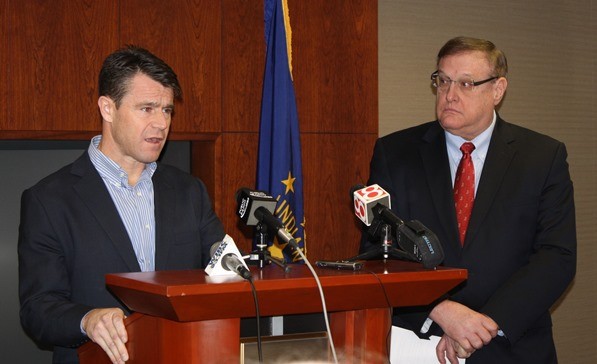 The Indiana Chamber is endorsing Congressman Todd Young (R-IN, 9th District) in his candidacy for the U.S. Senate. The announcement was made today at a press conference at Indiana Chamber headquarters in downtown Indianapolis.
The Indiana Chamber is endorsing Congressman Todd Young (R-IN, 9th District) in his candidacy for the U.S. Senate. The announcement was made today at a press conference at Indiana Chamber headquarters in downtown Indianapolis.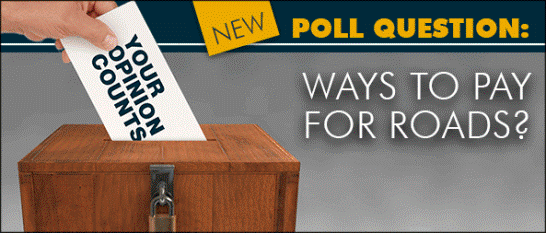
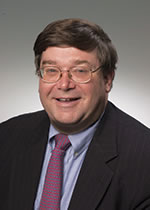 Charlie Cook is editor and publisher of the
Charlie Cook is editor and publisher of the 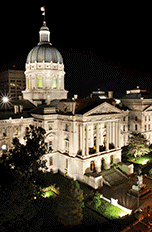 Election year dynamics, conservative Republican super majorities and the non-budget nature of the “short” session create the context for all issues facing the Indiana General Assembly in 2016. In economic development, the only issues to see much traction are adding LGBT civil rights protections to the Indiana Code and a short-term fix for the state’s roads and highways with an emphasis on local funding. Other issues will arise, but are unlikely to gain much attention.
Election year dynamics, conservative Republican super majorities and the non-budget nature of the “short” session create the context for all issues facing the Indiana General Assembly in 2016. In economic development, the only issues to see much traction are adding LGBT civil rights protections to the Indiana Code and a short-term fix for the state’s roads and highways with an emphasis on local funding. Other issues will arise, but are unlikely to gain much attention. As the 2016 legislative session nears, an interesting development occurred in Colorado over an issue that the Indiana Chamber has been working on for the last several years. This week, the Colorado Supreme Court determined that the practice of litigation finance, or more commonly referred to as “lawsuit lending”, was determined to be a loan and subject to Colorado’s Uniform Consumer Credit Code (UCCC).
As the 2016 legislative session nears, an interesting development occurred in Colorado over an issue that the Indiana Chamber has been working on for the last several years. This week, the Colorado Supreme Court determined that the practice of litigation finance, or more commonly referred to as “lawsuit lending”, was determined to be a loan and subject to Colorado’s Uniform Consumer Credit Code (UCCC).